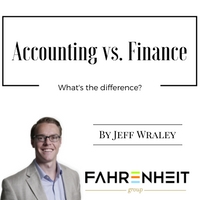Table of ContentsThe Ultimate Guide To What Is A Yankee Bond In Finance
A financier would be indifferent investing in the business bond or the government bond given that both would return $100. However, envision a bit later, that the economy has actually taken a turn for the even worse and rates of interest dropped to 5%. Now, the financier can only get $50 from the federal government bond, but would still receive $100 from the business bond.
So, financiers in the market will bid as much as the rate of the bond until it trades at a premium that equalizes the dominating rates of interest environmentin this case, the bond will trade at a cost of $2,000 so that the $100 voucher represents 5%. Likewise, if rate of interest skyrocketed to 15%, then a financier could make $150 from the government bond and would not pay $1,000 to make just $100. Comparable to standard loans, bonds likewise pay interest to its lenders, depending on the http://alexisrzwg015.huicopper.com/more-about-what-is-a-derivative-market-in-finance particular terms of each bond. Although bonds are a type of loan, they are structured a little in a different way than, for example, a consumer loan. While you most likely make monthly payments to pay back your customer loan, a borrowing bond issuer usually pays back the whole primary balance in complete Other loan providers characteristically are "big" gamers such as banks and other banks.
Governments have provided bonds as early as 1812, when the City of New York needed money for a canal and released bonds to raise the funds. But "federal government" is not restricted to cities; even the federal government got on the bond bandwagon in 1935, when it first issued maybe the most familiar kind of bond U.S (what is zero coupon bond in finance).
Outside the government realm, Bondholders are financiers who acquire bonds However "hold" is a relative term in today's electronic age - what does bond mean in finance. A lot of bond companies do not in fact issue paper bonds that a financier can literally hold, however rather they release bonds digitally, for financiers to hold essentially. Investors can acquire, handle and redeem their bonds online without leaving their office or homes.


For instance, a city (the avenue provider) might release bonds for a hospital (the channel debtor). There's a measure of danger for investors with conduit financing due to the fact that if the bond defaults, the avenue issuer is normally off the hook to ensure the bond. Various types of bond cover a diverse spectrum in the bond market that includes debtors as large as the federal government to a small local school district.
At the federal level, a government bond is called a "sovereign" debt, which is funded by taxes or government-printed currency. Sovereign financial obligation is divided into classes, according to when each financial obligation security grows. Bonds consist of, which mature in less than one year;, which grow in between one and 10 years; and, which mature in more than ten years.
Typically called "munis," or "city bonds" if the providing government is a city, these bonds may also be provided by federal government firms. Compared to federal bonds, municipal bonds normally carry a higher investing threat (what is a bond personal finance). Although it's uncommon, cities in some cases go insolvent and default on their financial obligation obligations. On the up side, nevertheless, municipal bonds are normally exempt from federal tax and frequently exempt from state tax, too.